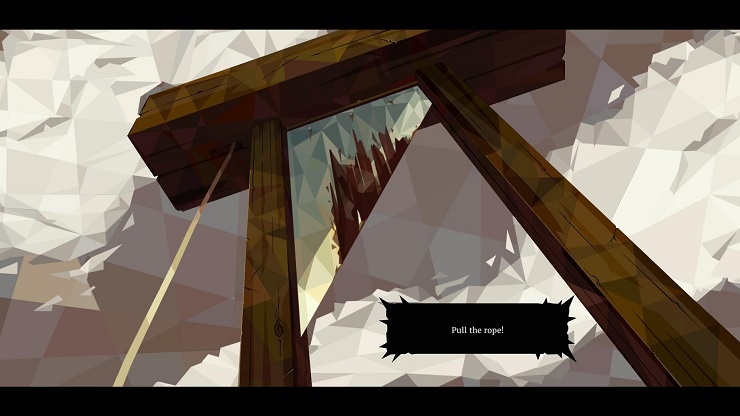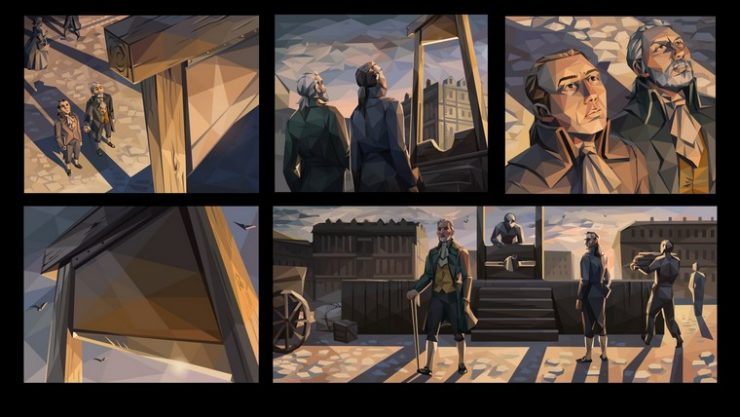Polyslash’s We. The Revolution thrusts you right into the most tumultuous time in French history – as a judge who has to make some tough decisions.
The game is both a systems-driven courtroom drama and a story about a family in an extremely troubled era of European history. You have to pass judgement on all sort of people, taking into account a variety of factors. Evidence, political affiliation, your own standing in society – way too often, the decisions in court are not based upon what’s right, but rather on their intended effects.
You see, you have to uphold a certain reputation, both with the common folk and the revolutionaries. Their goals are often opposed. For instance, in the case of a locksmith robbing his debtors after they refused payment, the common people demand acquittal, while the revolutionaries would rather see the defendant behind bars.

Other cases have even more severe repercussions. Do you allow the use of force against “ruffians ruining the capital”, or do you risk incurring the wrath of the National Guard? Do you convict a priest suspected of being a counter-revolutionary despite lack of evidence?
Whichever way you decide will annoy one of these groups, and when their goodwill is spent, you risk either being removed from office or ending up on the chopping block. Before too long, you will find yourself acting against your own impulses, sentencing people to punishments they don’t deserve, in order to keep your job (and head). This is hardly just, but it’s what you need to do to see another day.
When the working day is over, you get to spend time with your family. This sounds a lot more relaxing than it actually is, because your relations to specific family members also influence external factors. Do you spend your time gambling with your friends or playing with your son? Do you discuss politics with your father-in-law, or do you visit the opera with your wife?

Everything will have repercussions on your career and the unfolding story. If We. The Revolution teaches you one thing, it’s that there are no right decisions. Whatever you decide, someone profits and someone else suffers. The only way through it to keep your wits about you and hang onto your head.
The game sports a lovely low-poly look that almost makes things look like stained glass art at times. Unfortunately, it feels slightly unfinished. For example, some scenes have no sound whatsoever. It also requires you to brush up on your knowledge of the French Revolution before you play, otherwise you might run into problems understanding what’s what. Just the basics are fine, mind you. This is a game, not an exact retelling of a historical event.
We. The Revolution is a bold, ambitious game that requires a bit of work to get into. It also feels like it overreaches at times – that it doesn’t quite manage to shoulder the immense burden of what it tries to accomplish. Still, we can always use more of these games, even if their moral quandaries make us feel bad. Or maybe because they do.
You can buy We. The Revolution from the Humble Store, Steam, and GOG.

